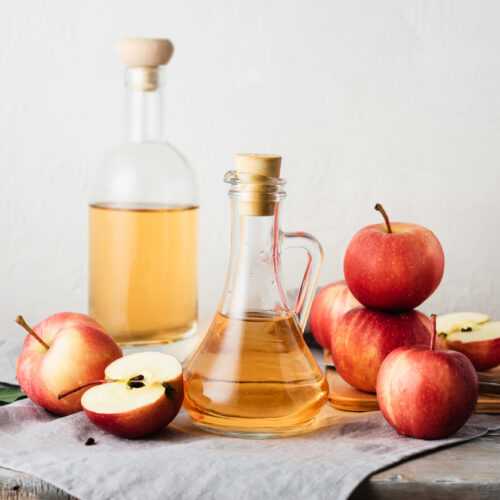
Eating a healthy diet is not just good for your body, it may be linked to better mental health and wellbeing, according to a new study.
Highly processed foods, including those high in sugar or salt, are known to cause inflammation which negatively affects physical health. But now Australian researchers say the inflammation markers they produce may also affect mental health.
The research, published in the British Journal of Nutrition, found that diets high in inflammatory foods were associated with poorer mental wellbeing in children aged 11-12 years, with similar effects observed in their parents.
The researchers looked at inflammatory diet scores and mental wellbeing in 1759 11-12-year olds and 1812 parents taking part in the Child Health Checkpoint Study.
They found high inflammatory diet scores correlated with a higher risk of being in the worst mental wellbeing category.
Healthy eating patterns need to start in early life
Inflammatory diets and mental wellbeing trajectories are typically established by adolescence, the study says.
Lead author Kate Lycett says the findings demonstrate the importance of introducing a healthy, low-inflammatory diet – high in vegetables, fruit and whole grains – early in life for both physical and mental health protection.
“This research demonstrates yet another compelling reason to urgently reduce inflammatory diets early in life. High sugar and salt diets and poor mental health are two pressing societal concerns,” Dr Lycett says.
Study limitations
The study was observational, so can’t prove cause and effect, just a link, so further investigation is needed.
How to eat an anti-inflammatory diet
Inflammation is the immune system’s way of responding to injury or infection, but chronic inflammation, where the body continually releases inflammatory chemicals, can harm healthy cells, resulting in disease.
What you eat can help reduce inflammation in your body. Foods that reduce inflammation include omega-3 fats, monounsaturated fats, fibre and phytonutrients found in plants.
A diet that focusses on plant foods, such as vegetables, fruit, legumes, nuts, seeds and whole grains, along with some fish and seafood, can help reduce inflammation.
Limiting the amount of saturated and trans fats and highly processed carbs you eat will help promote the inflammation-fighting power of plant foods and fish.
4 foods that fight inflammation
1. Fruit and vegetables are a good source of anti-inflammatory and antioxidising phytonutrients. Eating a wide range of fruit and veg will help maximise these helpful nutrients.
2. Legumes and whole grains help keep blood sugar and insulin levels lower, helping prevent inflammation. They also are full of fibre which helps your gut health and, in turn, your immune system.
3. Fish and seafood are a great source of omega-3 fats which have an anti-inflammatory effect. If you don’t eat seafood, tofu, walnuts and flaxseeds are also good choices.
4. Healthy fats While saturated and trans fats can increase inflammation, healthy monounsaturated fats, such as those found in avocados, nuts, seeds and extra-virgin olive oil, help to reduce inflammation.
Article sources and references
- Lycett, K, Wijayawickrama, D, et al (2021). Does an inflammatory diet affect mental well-being in late childhood and mid-life? A cross-sectional study. British Journal of Nutrition, 1-9. doi:10.1017/S0007114521001616https://www.cambridge.org/core/journals/british-journal-of-nutrition/article/abs/does-an-inflammatory-diet-affect-mental-wellbeing-in-late-childhood-and-midlife-a-crosssectional-study/1751CA1258E6B304B44C64EA057F3853
- Scimex, 2 September 2021. Healthy diets linked to better mental health and wellbeing. Accessed Septemebr 2021https://www.scimex.org/newsfeed/healthy-diets-linked-to-better-mental-health-and-wellbeing
- Murdoch Children's Research Institute. About the Child Health CheckPoint, Accessed September 2021https://www.mcri.edu.au/research/projects/longitudinal-study-australian-childrens-child-health-checkpoint
www.healthyfood.com










